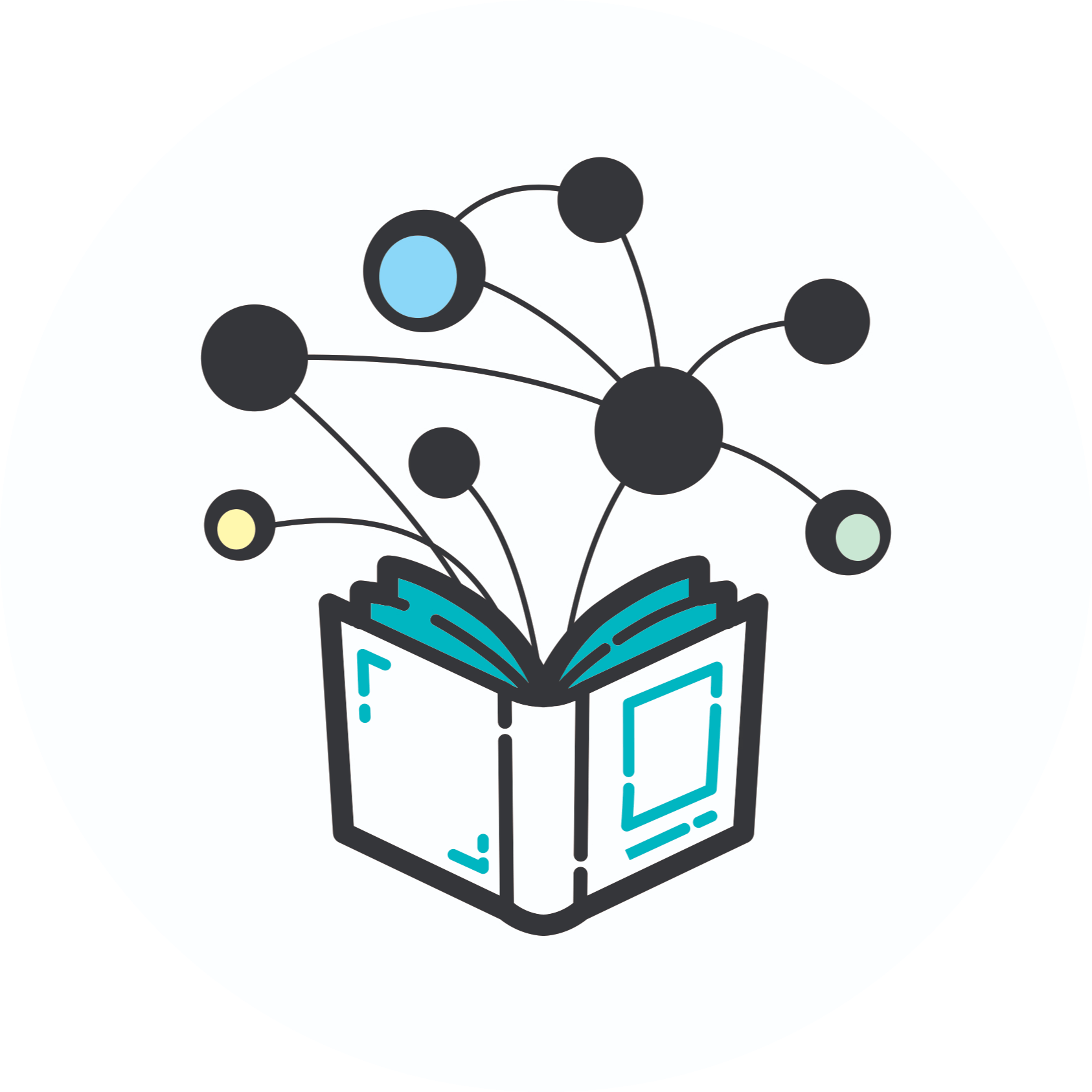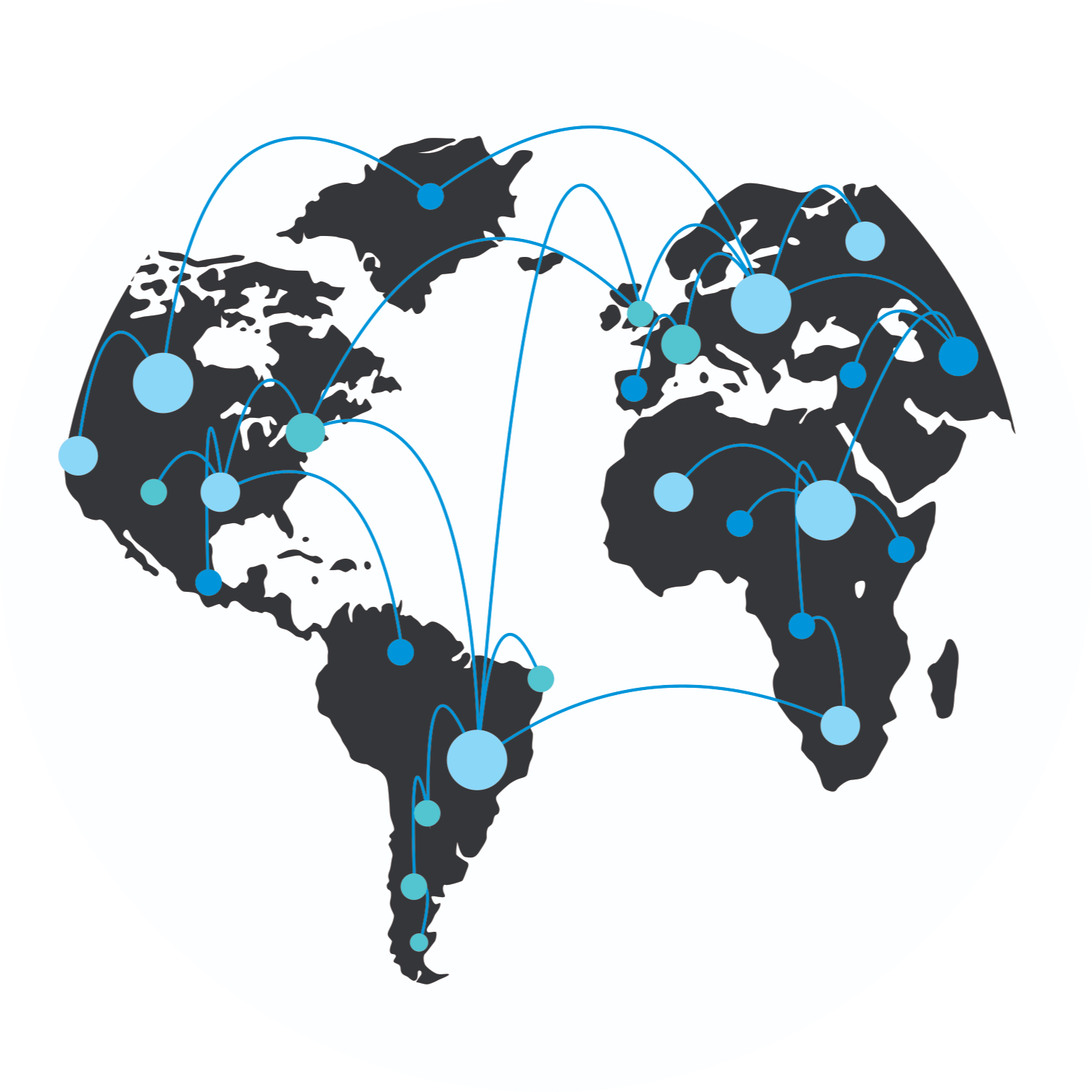Digital Epidemiology
Epidemiology can be defined as the "study of the distribution and determinants of health-related states or events in specified populations, and the application of this study to the control of health problems". Digital data, such as search queries, social media posts, webpage access logs, mobile phone network data, data generated by sensors, and data collected at call centers, are currently being applied to epidemiology. Our lab has access to large datasets and advanced analytics which enable us to perform Digital Epidemiology.
Knowledge-based networks
Thousands of new scientific articles are published every day, which pile up exponentially with the other millions of papers already deposited in the literature. Keeping up with the scientific state-of-the-art has become an overwhelming task for researchers even in their own fields and subfields, let alone in other areas of science. In this scenario, computational methods such as text-mining, machine learning, and cognitive computing are becoming invaluable to make the chore of summarising published scientific literature less daunting. In this project, we utilized cognitive computing text-mining application to extract known relationships between genes and a broad range of diseases from the peer-reviewed literature. We built knowledge networks of genes and diseases and tracked the evolution of these relationships yearly.
Lista de serviços
-
Why should obese youth be prioritized in COVID-19 vaccination programs? A nationwide retrospective study Obesity alone is a risk factor for in-hospital mortality and is more significant than cardiovascular disease and diabetes. Furthermore, obesity, cardiovascular disease, and diabetes increase the risk of severity and death by COVID-19 more significantly in young adults than in the elderly. When categorizing patients by obesity classes, the severity of obesity was found to be associated with a higher risk of admission to the ICU and death from COVID-19 than the non-obese young adults or elderly population.Why should obese youth be prioritized in COVID-19 vaccination programs? A nationwide retrospective study
-
Cross-sectional analysis of students and school workers reveals a high number of asymptomatic SARS-CoV-2 infections during school reopening in Brazilian cities Brazil experienced one of the most prolonged periods of school closures, and reopening could have exposed students to high rates of SARS-CoV-2 infection. However, the infection status of students and school workers at the time of the reopening of schools located in Brazilian cities is unknown. Here we evaluated viral carriage by RT-PCR and seroprevalence of anti-SARS-CoV-2 antibodies (IgM and IgG) by immunochromatography in 2259 individuals (1139 students and 1120 school workers) from 28 schools in 28 Brazilian cities. We collected the samples within 30 days after public schools reopened and before the start of vaccination campaigns. Most students (n = 421) and school workers (n = 446) had active (qRT-PCR + IgM- IgG- or qRT-PCR + IgM + IgG-/+) SARS-CoV-2 infection. Regression analysis indicated a strong association between the infection status of students and school workers. Furthermore, while 45% (n = 515) of the students and 37% (n = 415) of the school workers were neither antigen nor antibody positive in laboratory tests, 16% of the participants (169 students and 193 school workers) were oligosymptomatic, including those reinfected. These individuals presented mild symptoms such as headache, sore throat, and cough. Notably, most of the individuals were asymptomatic (83.9%). These results indicate that many SARS-CoV-2 infections in Brazilian cities during school reopening were asymptomatic. Thus, our study highlights the need to promote a coordinated public health effort to guarantee a safe educational environment while avoiding exacerbating pre-existent social inequalities in Brazil, reducing social, mental, and economic losses for students, school workers, and their families.Cross-sectional analysis of students and school workers reveals a high number of asymptomatic SARS-CoV-2 infections during school reopening in Brazilian cities
-
HIV infection increases the risk of acquiring Plasmodium vivax malaria: a 4-year cohort study in the Brazilian Amazon HIV and risk of vivax malaria Globally, malaria and human immunodeficiency virus (HIV) are both independently associated with a massive burden of disease and death. While their co-infection has been well studied for Plasmodium falciparum, scarce data exist regarding the association of P. vivax and HIV. In this cohort study, we assessed the effect of HIV on the risk of vivax malaria infection and recurrence during a 4-year follow-up period in an endemic area of the Brazilian Amazon. For the purpose of this study, we obtained clinical information from January 2012 to December 2016 from two databases. HIV screening data were acquired from the clinical information system at the tropical hospital Fundação de Medicina Tropical Dr. Heitor Vieira Dourado (FMT-HVD). The National Malaria Surveillance database (SIVEP malaria) was utilized to identify malaria infections during a 4-year follow-up period after diagnosis of HIV. Both datasets were combined via data linkage. Between 2012 and 2016, a total of 42,121 people were screened for HIV, with 1569 testing positive (3.7%). Out of all the patients diagnosed with HIV, 198 had at least one episode of P. vivax malaria in the follow-up. In the HIV-negative group, 711 participants had at least one P. vivax malaria episode. When comparing both groups, HIV patients had a 6.48 [(5.37–7.83); P < 0.0001] (adjusted relative risk) greater chance of acquiring P. vivax malaria. Moreover, being of the male gender [ARR = 1.41 (1.17–1.71); P < 0.0001], Amerindian ethnicity [ARR = 2.77 (1.46–5.28); P < 0.0001], and a resident in a municipality of the Metropolitan region of Manaus [ARR = 1.48 (1.02–2.15); P = 0.038] were independent risk factors associated with an increased risk of clinical malaria. Education ≥ 8 years [ARR = 0.41 (0.26–0.64); P < 0.0001] and living in the urban area [ARR = 0.44 (0.24–0.80); P = 0.007] were associated to a lower risk of P. vivax malaria. A total of 28 (14.1%) and 180 (25.3%) recurrences (at least a second clinical malaria episode) were reported in the HIV-positive and HIV-negative groups, respectively. After adjusting for sex and education, HIV-positive status was associated with a tendency towards protection from P. vivax malaria recurrences [ARR = 0.55 (0.27–1.10); P = 0.090]. HIV status was not associated with hospitalizations due to P. vivax malaria. CD4 + counts and viral load were not associated with recurrences of P. vivax malaria. No significant differences were found in the distribution of parasitemia between HIV-negative and HIV-positive P. vivax malaria patients. Our results suggest that HIV-positive status is a risk factor for vivax malaria infection, which represents an additional challenge that should be addressed during elimination efforts.HIV infection increases the risk of acquiring Plasmodium vivax malaria: a 4-year cohort study in the Brazilian Amazon HIV and risk of vivax malaria
-
Evolution and epidemic spread of SARS-CoV-2 in Brazil. Brazil currently has one of the fastest-growing severe acute respiratory syndrome coronavirus 2 (SARS-CoV-2) epidemics in the world. Because of limited available data, assessments of the impact of nonpharmaceutical interventions (NPIs) on this virus spread remain challenging. Using a mobility-driven transmission model, we show that NPIs reduced the reproduction number from >3 to 1 to 1.6 in São Paulo and Rio de Janeiro. Sequencing of 427 new genomes and analysis of a geographically representative genomic dataset identified >100 international virus introductions in Brazil. We estimate that most (76%) of the Brazilian strains fell in three clades that were introduced from Europe between 22 February and 11 March 2020. During the early epidemic phase, we found that SARS-CoV-2 spread mostly locally and within state borders. After this period, despite sharp decreases in air travel, we estimated multiple exportations from large urban centers that coincided with a 25% increase in average traveled distances in national flights. This study sheds new light on the epidemic transmission and evolutionary trajectories of SARS-CoV-2 lineages in Brazil and provides evidence that current interventions remain insufficient to keep virus transmission under control in this country.Evolution and epidemic spread of SARS-CoV-2 in Brazil.
-
Thinking out of the box: revisiting health surveillance based on medical records Despite the considerable advances in the last years, the health information systems for health surveillance still need to overcome some critical issues so that epidemic detection can be performed in real time. For instance, despite the efforts of the Brazilian Ministry of Health (MoH) to make COVID-19 data available during the pandemic, delays due to data entry and data availability posed an additional threat to disease monitoring. Here, we propose a complementary approach by using electronic medical records (EMRs) data collected in real time to generate a system to enable insights from the local health surveillance system personnel. As a proof of concept, we assessed data from São Caetano do Sul City (SCS), São Paulo, Brazil. We used the "fever" term as a sentinel event. Regular expression techniques were applied to detect febrile diseases. Other specific terms such as "malaria," "dengue," "Zika," or any infectious disease were included in the dictionary and mapped to "fever." Additionally, after "tokenizing," we assessed the frequencies of most mentioned terms when fever was also mentioned in the patient complaint. The findings allowed us to detect the overlapping outbreaks of both COVID-19 Omicron BA.1 subvariant and Influenza A virus, which were confirmed by our team by analyzing data from private laboratories and another COVID-19 public monitoring system. Timely information generated from EMRs will be a very important tool to the decision-making process as well as research in epidemiology. Quality and security on the data produced is of paramount importance to allow the use by health surveillance systemsThinking out of the box: revisiting health surveillance based on medical records
-
Temporal and spatial analysis of over 7,000 measles cases outbreak from 2018 to 2019 in the Brazilian Amazon. OBJECTIVE: This study aimed to present a temporal and spatial analysis of the 2018 measles outbreak in Brazil, particularly in the metropolitan city of Manaus in the Amazon region, and further introduce a new tool for spatial analysis. METHODS: We analyzed the geographical data of the residences of over 7,000 individuals with measles in Manaus during 2018 and 2019. Spatial and temporal analyses were conducted to characterize various aspects of the outbreak, including the onset and prevalence of symptoms, demographics, and vaccination status. A visualization tool was also constructed to display the geographical and temporal distribution of the reported measles cases. RESULTS: Approximately 95% of the included participants had not received vaccination within the past decade. Heterogeneity was observed across all facets of the outbreak, including variations in the incubation period and symptom presentation. Age distribution exhibited two peaks, occurring at one year and 18 years of age, and the potential implications of this distribution on predictive analysis were discussed. Additionally, spatial analysis revealed that areas with the highest case densities tended to have the lowest standard of living. CONCLUSION: Understanding the spatial and temporal spread of measles outbreaks provides insights for decision-making regarding measures to mitigate future epidemics.Temporal and spatial analysis of over 7,000 measles cases outbreak from 2018 to 2019 in the Brazilian Amazon.


